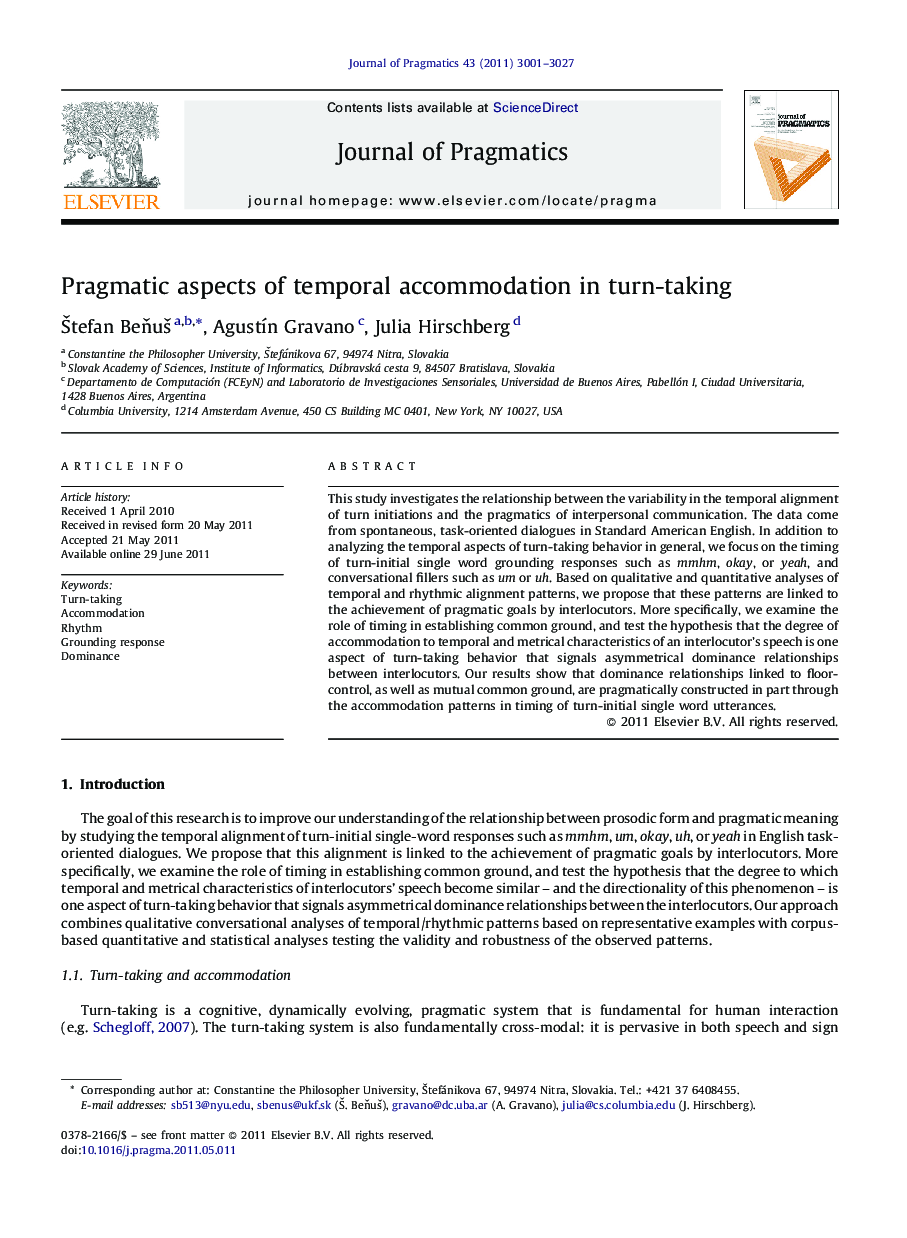| Article ID | Journal | Published Year | Pages | File Type |
|---|---|---|---|---|
| 933209 | Journal of Pragmatics | 2011 | 27 Pages |
This study investigates the relationship between the variability in the temporal alignment of turn initiations and the pragmatics of interpersonal communication. The data come from spontaneous, task-oriented dialogues in Standard American English. In addition to analyzing the temporal aspects of turn-taking behavior in general, we focus on the timing of turn-initial single word grounding responses such as mmhm, okay, or yeah, and conversational fillers such as um or uh. Based on qualitative and quantitative analyses of temporal and rhythmic alignment patterns, we propose that these patterns are linked to the achievement of pragmatic goals by interlocutors. More specifically, we examine the role of timing in establishing common ground, and test the hypothesis that the degree of accommodation to temporal and metrical characteristics of an interlocutor's speech is one aspect of turn-taking behavior that signals asymmetrical dominance relationships between interlocutors. Our results show that dominance relationships linked to floor-control, as well as mutual common ground, are pragmatically constructed in part through the accommodation patterns in timing of turn-initial single word utterances.
► We study the timing of turn-initial single word grounding responses and conversational fillers. ► Spontaneous, task-oriented dialogues in Standard American English. ► Qualitative and quantitative analyses. ► Interlocutors accommodate the timing of these turn-initial responses to each other. ► Accommodation facilitates the creation of common ground and asymmetrical dominance relationship.
